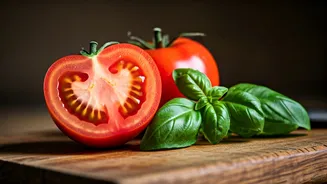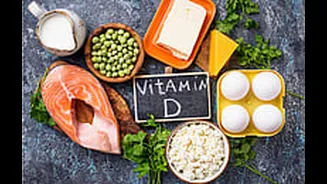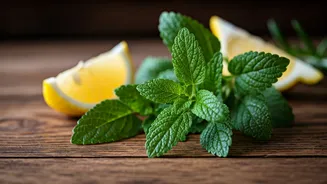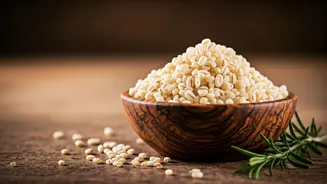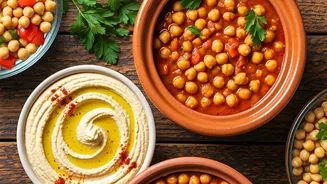Embrace the Power
Managing high blood pressure through dietary changes has become increasingly important. Many individuals are now turning to natural solutions to support
their cardiovascular health. A leading US doctor has identified five foods that are particularly effective in naturally lowering blood pressure. This approach offers an accessible and proactive way for people to manage their health. Understanding the benefits of these specific foods and how to incorporate them into daily meals allows for informed dietary choices. Incorporating these foods provides a pathway to better health without resorting to complicated dietary restrictions. This strategy makes taking control of one's health easier and more attainable, leading to a focus on well-being and natural approaches to health management.
Leafy Green Vegetables
Leafy green vegetables top the list as a key component in lowering blood pressure. Spinach, kale, and collard greens are rich in nitrates, which the body converts into nitric oxide. Nitric oxide helps relax and widen blood vessels, allowing blood to flow more freely and reducing blood pressure. Eating at least one serving of these vegetables daily is an easy step toward improved health. These vegetables can be added to salads, smoothies, or cooked as a side dish, making them extremely versatile. The benefits extend beyond blood pressure control, as these greens are packed with vitamins, minerals, and antioxidants that promote overall wellness. Regularly consuming leafy greens supports a more holistic approach to health, contributing to both short-term and long-term benefits.
Berries: Nature's Boost
Berries are not only delicious but also incredibly beneficial for managing blood pressure. Blueberries, strawberries, and raspberries are loaded with antioxidants, particularly anthocyanins. These compounds help protect blood vessels from damage and improve their function. These small fruits can have a significant impact on health. Eating berries frequently is an enjoyable way to support cardiovascular health. They are easy to incorporate into any meal. They can be added to breakfast cereals, enjoyed as a snack, or used in desserts. Their natural sweetness makes them a great alternative to processed snacks, providing a healthy and tasty option for those looking to manage their blood pressure. Integrating berries into a daily diet provides both health benefits and a delicious treat.
Beetroot: A Powerful Ally
Beetroot and beetroot juice are powerful aids in blood pressure management. Beets are high in nitrates, similar to leafy greens. These nitrates convert into nitric oxide in the body, which helps relax blood vessels and reduce pressure. Including beetroot in your diet can significantly impact your cardiovascular health. Beetroot can be consumed in various forms, including roasted, boiled, juiced, or even added to smoothies. Eating beetroot supports overall health and provides a natural way to manage blood pressure. The versatility of beetroot makes it easy to integrate into a range of meals and snacks, ensuring that you can easily consume it regardless of your dietary preferences. Adding beetroot is a simple yet impactful strategy for better health.
Oatmeal for Heart Health
Oatmeal is a heart-healthy food that contributes to lower blood pressure. It is packed with soluble fiber, which helps reduce cholesterol levels. It is also good for blood vessel health. Oatmeal not only helps lower blood pressure but also improves overall heart health. Starting the day with a bowl of oatmeal is a simple yet effective way to manage your health. Adding fruits and nuts to the oatmeal can enhance its nutritional value and make it even more beneficial. This breakfast staple is easy to prepare and provides sustained energy, promoting a feeling of fullness that helps prevent overeating. Making oatmeal a part of your regular diet supports cardiovascular health and boosts overall well-being.
Garlic: A Flavorful Remedy
Garlic has long been recognized for its medicinal properties, including its ability to lower blood pressure. It contains allicin, a compound that helps relax blood vessels and reduce blood pressure. Consuming garlic regularly can significantly improve cardiovascular health. Adding garlic to meals is a flavorful and effective way to support your health. It can be minced, crushed, or added to various dishes, enhancing both the taste and nutritional value of your meals. Garlic is a versatile ingredient that can be incorporated into almost any cuisine. It's a natural and accessible option for those seeking to manage their blood pressure. By including garlic in the diet, one can enjoy both culinary delights and significant health benefits.
